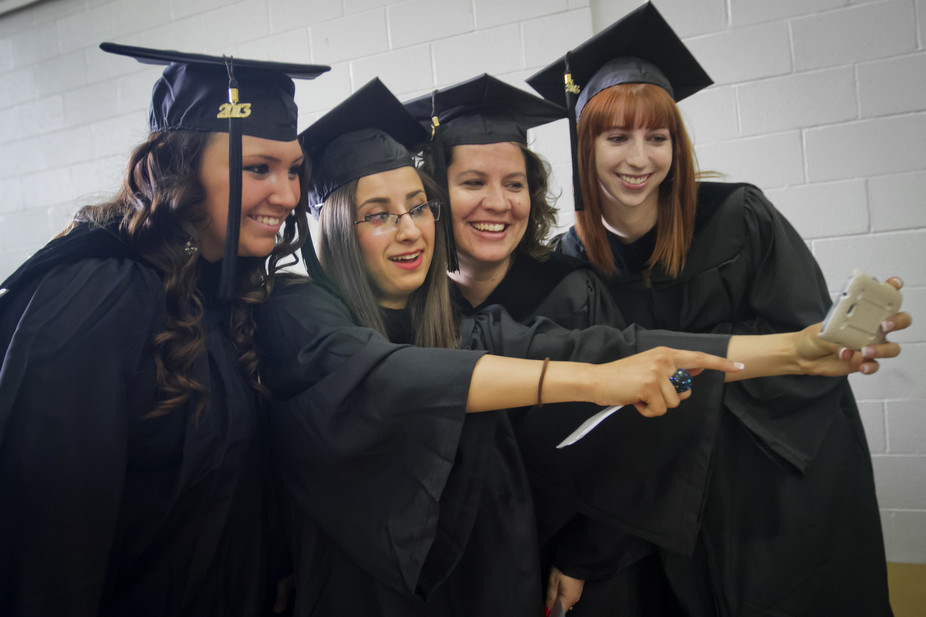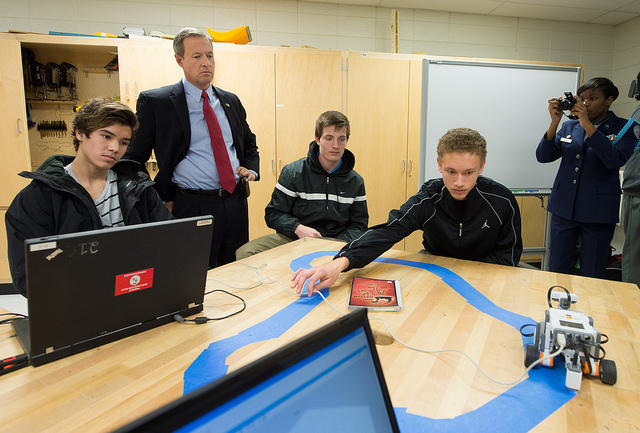Just graduated? Does it make you feel like a grown up?

Michael Vuolo, The Ohio State University and Jeylan T Mortimer, University of Minnesota
We may think that a simple age cutoff – such as 18 – should make us feel like adults. And why not? After all, crossing an age threshold can bestow certain rights, such as voting, military enlistment, purchase of certain substances as well as adult images or videos.
From our perspective as researchers who study the transition from adolescence to adulthood, these legally defined age markers are hardly a good indicator of when we feel like adults. They can be subject to change and have no universal or even national standard.
For example, the minimum age for purchase for alcohol and recreational marijuana is 21. But the purchase of recreational marijuana is not legally permitted in all states. While tobacco purchase age is typically 18, two states and several cities recently moved the tobacco purchase age up to 21.
In addition, often times, individuals may not always “feel” like an adult simply because they passed an age marker.
So, when do we “feel” like adults?
Path to adulthood
Our idea of “adult” is bound closely to both our objective attainment of certain roles as well as our subjective evaluation of the timing of those roles.
Scholars working in this area have identified five important role transitions marking adulthood: finishing school, leaving home, acquiring stable work, marrying and parenting.
Although each of these adult roles has been considered alone or in pairs, little is known about how people traverse all the roles simultaneously and how achieving these markers of adulthood affects considering one’s self an “adult.”
People may feel “on time” or “off time,” depending on whether they achieve adult roles at the “right time.“ In other words, feeling like an adult may be tied to achieving multiple roles marking adult life rather than any single one and doing so in a timely manner compared to peers.

Pathway to adult life? Elizabeth Donoghue, CC BY-NC-ND
A typical pathway was laid out in the early and mid-20th century: exit school, get a job, move out of the parental home, get married, and have children.
While this might be considered the “normal” pathway even today, these transitions do not occur in such a neat and predictable order for many contemporary young people. Furthermore, the time to complete them has become longer.
It is commonplace today for young people to return to school after beginning work, move back in with parents (or never leave), have children prior to marriage, or work in less secure part-time jobs.
Different transition paths
Given the myriad possible paths through these roles, our research seeks to find frequent patterns or commonalities in the ways roles marking adulthood are traversed from ages 17 to 30 and what they mean for considering oneself an adult.
The study is based on a sample of 1,010 freshmen of St. Paul Public Schools, a school district of Minnesota. The survey started in 1988 and continued near annually through 2011. Over 20 years, this study has examined the consequences of work and other formative experiences in adolescence for the transition to adulthood.
Using a method that could identify distinct patterns in the timing and sequencing of adult roles, we found that the traditional school-to-work transition followed by “family formation” (that is, getting married and having children – around age 25) described above still exists.
However, only about 17 percent of young people follow that path today. Rather, most youth take four other pathways to adulthood.
Two of those paths involve a traditional school-to-work transition in one’s early twenties. But they are different in when they choose to form a family: one group delayed forming a family until their late twenties (20 percent); another did not do so by age 30 (27 percent).
The two remaining paths were distinguished by their low likelihood of attending college and early marriage and kids. Each member of this group had children by age 22.
But even these two paths defined by early parenting differed from one another: One group of early parents married and acquired full-time work (15 percent). The other, however, had much lower chances of achieving those roles (20 percent).
In other words, there were several objective ways to traverse the transition to adulthood.
Marriage, parenthood are critical
The question remains, do the members of these groups feel like an adult when they reach their mid-twenties? Have they acquired an adult identity? Do they think they are on or off time in achieving the five markers of adulthood?
Given the social acceptance of the traditional pathway of school-work-marriage- kids, individuals following that were more inclined to view themselves “entirely” as an adult. They considered themselves “on time” with regards to marriage and financial independence, relative to their peers.
Early parents who married and acquired full-time work also felt entirely like adults, although they considered themselves “very early” in traversing those markers.

Truly feeling like an adult is tied to forming one’s own family. Kim Davies, CC BY-NC-ND
By contrast, the early parents who did not get married or acquired stable work, felt “very early” on parenthood, but “very late” on other markers like marriage, cohabitation, and financial independence.
The other two groups who took the traditional school-to-work transition but delayed or did not get married and had kids felt “not entirely” like an adult. They believed that they were “very late” on parenthood.
While they achieved several traditional markers of adulthood, including finishing school, getting a job, and moving out on their own, they still did not feel like adults without marriage and parenthood.
It would appear that truly feeling like one has become an adult is tied to forming one’s own family via marriage and parenthood.
When do we “feel” adult?
Our research shows that there are many pathways that young people take in transitioning to adulthood. Adulthood is a subjective process that no one marker appears to be able to define, though marriage and parenthood are particularly important.
Moving away from the more traditional school-to-work transition allows for a period of exploration, as young people figure out what they want to do in life. Acquiring markers of adulthood is associated with leaving behind deviant behavior, such as heavy partying and even theft, usually committed at younger ages. Furthermore, in ongoing research, we find that early parents without partners have poor objective and subjective health outcomes.
But, to come back to the original question, when do we “feel” like adults, there is no simple answer.
Individuals become adults when they feel like adults, but this feeling is tied to the timely acquisition of certain markers, especially marriage and parenthood. Such subjective assessments are socially constructed.
In time, as the four “non-traditional” pathways become more commonplace, perhaps what is perceived as “on time” adulthood will shift so that individuals following those paths will view themselves as adults earlier in life.
![]()
Michael Vuolo, Assistant Professor of Sociology, The Ohio State University and Jeylan T Mortimer, Professor of Sociology, University of Minnesota
This article was originally published on The Conversation. Read the original article.






